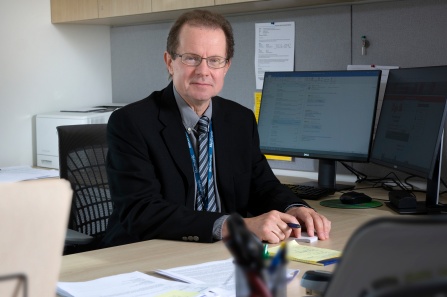About Us

Department chair Mikhail Pletnikov, MD, PhD.
Our department has an illustrious history of excellence in physiology and neurophysiology. We continue our tradition by maintaining high standards of education, research and public service.
The research mission of the department is to advance our understanding of how the cells, tissues and organs of the body communicate and work together to maintain the body’s wellbeing and functional capacities during development, adulthood and aging. The philosophy of our department is that human diseases are complex and progress in medicine is impossible without integrative consideration of the molecular and systemic mechanisms that underlie these states. This inter-disciplinary, “holistic” and, at the same time, mechanistic approach to health and disease is what makes our department unique.
We use state-of-the-art genetic, molecular, cellular, and systems levels physiological and biophysical techniques to study complex non-communicable human disorders. Our research programs focus on (i) the role of brain-immune-gut interplay and neuron-glia communication in neuropsychiatric disorders; (ii) the interactions between multiple organs, including kidney-heart interplay, to understand the pathogenic mechanisms of multiorgan failures; (iii) the pathophysiology of neurodevelopmental and neurodegenerative disorders using human-derived induced pluripotent stem cells and animal models, and (iv) the biophysics of ion channels.
Our faculty actively participate in several interdisciplinary centers. The diversity of expertise and the collegial atmosphere have helped our faculty secure independent research funding. Our laboratories have been supported by the grants from the National Institutes of Health, Howard Hughes Medical Institute and Keck Foundation. Recently, grant funding of our department has ranked the second high in the country among comparable departments by the Association of Chairs of Departments of Physiology. Research in the department has been published in leading scientific journals and attracted wide public attentions.
We offer extensive educational programs in molecular and cellular neurobiology, systems physiology, neurophysiology and biophysics at the undergraduate, graduate, and postdoctoral levels. The faculty of the department offer training towards a master's or PhD degree in physiology, biophysics and neuroscience. Postdoctoral and medical student research opportunities are available in many laboratories. Many past trainees of the department have become leaders in their fields.
Diversity Statement
The Department of Physiology and Biophysics is committed to promoting an open and welcoming environment where the value of diversity amongst its members is recognized as imperative for continued academic excellence. We aim to create an inclusive community of students, faculty, and staff that embraces, but is not limited to, diversity in race, ethnicity, nationality or place of origin, gender, sexual orientation, gender identity, age, religion, language, abilities/disabilities, socioeconomic status, and veteran status. We will continue to make every effort in maintaining a supportive milieu in which differences are encouraged and respected.




